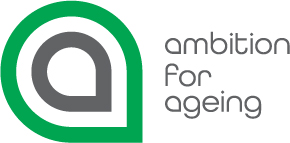Ageing Equally? is a research project focusing on what makes a good place in which to grow older for people who belong to minority communities. Research from the Ambition for Ageing programme has shown us that marginalisation is linked to the risk of social isolation.
This programme aims to generate a deeper understanding of what supports wellbeing and what makes places age-friendly for a cross-section of communities of identity or experience within the population of Greater Manchester, in order to prevent social isolation.
Organisations selected to deliver Ageing Equally? were asked to target one specific target group, in one particular ward, neighbourhood or across multiple areas. Vital is their ability to reach and engage with a specific community of identity or experience and being able to work in an inclusive way by actively seeking members of the community who may have multiple barriers and/or identify with more than one minority group.
Aging Equally is made up of up to ten large research projects supported by the central Ambition for Ageing team at GMCVO and five smaller research projects supported by the Equalities Board based at the LGBT Foundation.
Do Well Ltd have been selected to provide technical assistance to organisations taking part in Ageing Equally?.
Smaller research projects:
- Ethnic Health Forum in Manchester is researching the barriers to accessing services for older people in the Kuwaiti Bedoun community in Central Manchester wards
- Europia in Manchester is researching the assets and skills of Polish people aged 50+ in Greater Manchester
- St George’s Centre in Bolton is researching what makes an age-friendly neighbourhood for older people with long term mental illness who live in the BL1 postcode area
- Visible Outcomes in Salford is researching what makes an age-friendly neighbourhood for refugees and asylum seekers over 50 years old who live in Salford
- Wai Yin in Manchester is researching how Chinese older people, especially disabled people and those who speak different community languages, can grow old and happy
Larger research projects:
- Change, Grow, Live Manchester in partnerships with Broom/Gekoski will consider how older people in recovery from substance misuse experience ageing in Tameside, using research methods such as interviews, relfective workshops, surveys mapping and co-researchers.
- Europia will look at the challenges faced by European expatriates aged 50+, by targeting Romanian, Czech, Portuguese, Polish and Roma communities living in Greater Manchester, with a focus on Salford, Tameside, Oldham and Bolton. The focus will be on their wellbeing and identity, using surveys, focus groups and interviews.
- Halal Incorp will look at Muslim men aged 50+ in Central Rochdale, largely a community who live in poor housing, suffer from discrimination and social and economic deprivation. Surveys, focus groups and walking interviews will be used to collect data.
- Henshaws are seeking to increase awareness and understanding of the needs of visually impaired older people, including gaps and exclusions that may lead to them being isolated. It hopes to generate evidence to evaluate the case for community-specific provision through a comparative study of two neighbourhoods, and to generate evidence of what is needed for older visually impaired people to be fully included in service provision. They will work in North and South Manchester, predominantly Harpurhey and Wythenshawe using surveys, focus groups and walking interviews.
- Manchester Congolese Organisation (MaCO) will look at what factors affect how elders in the Francophone African community age well in Manchester City Centre. It will seek to understand what this group understands by ageing well and how, in the context and conditions of forced migration, place can influence this. Research methods include baseline surveys, 3 month follow-ups and fortnightly diary entries.
- Manchester Deaf Centre will look at ageing deaf sign language users aged 50+ in Bolton, Oldham and Tameside. It will consider how this group defines ‘neighbourhood’, who they consider allies, and will look at everyday experiences of being a local citizen in their borough through focus groups.
- Oldham Coliseum Theatre will focus on the role that textiles play for Pakistani women aged 55+ in Glodwick, Oldham to highlight what makes Oldham a good place to age. The use of textiles relates to their significance in memories of ‘home’. Outputs include a performance and exhibition based on research findings, as well as a workshop and publication.
- Rethink Rebuild Society will be looking at elderly Syrian refugees in Salford and Oldham. Data collection methods will include walking interviews and photovoice wherein participants will capture their daily lives though photographs.
- Uni Consulting, Unique Improvements Ltd will be looking at the older Jewish community in Broughton, Salford to understand their community and identify positive aspects of the community. They will also identify which areas promote a good standard of health and wellbeing.
- Wai Yin Society will be exploring traditional Chinese beliefs of growing old, as well as difficulties faced by the older disadvantaged Chinese community in their daily lives, and gaps in services provided in order to reduce isolation and loneliness. They will work with Members of Sheung Lok Wellbeing Centre of Wai Yin Society, and the primary research method will be interviews.
First point of contact for the Ageing Equally? programme: Ellie Nixon on ellie.nixon@gmcvo.org.uk or 0161 277 1048
